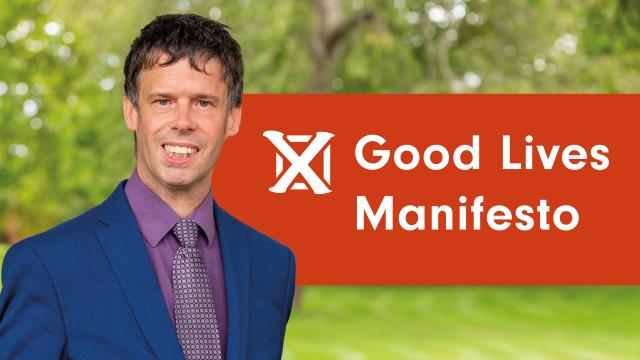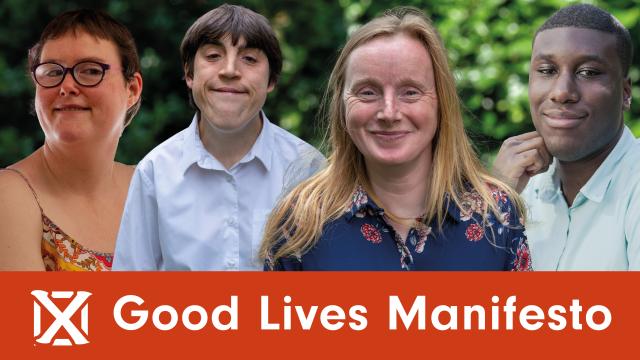
Good Lives Manifesto: Making democracy accessible
In our second weekly election blog, Summer, one of our Associates in the Listen Up programme, talks about accessible voting. This is one of the key points in Learning Disability England’s Good Lives Manifesto.
On July 4th, Summer will vote in a General Election for the first time. She has been legally able to vote in previous elections, but as someone with a learning disability and sight loss, it has been difficult for her to vote in the past.
It is still not standard practice for parties to provide easy read manifestos, which would help people with learning disabilities to understand the issues they are voting on. Many people are left behind when candidates use complicated political jargon.
The voting experience itself is not easy either, especially for visually impaired people who require reasonable adjustments to be made. Although accessibility has improved in recent years, these barriers can often seem overwhelming.
Summer is nervous, but is determined to make her voice heard.
"Accessible information about how to vote and information about what each party actually does is important for everyone. I can then make an informed decision about who I vote for. I need to make decisions based around issues that are important to me. I am important, my voice needs to be heard."
Having the information make an informed decision is a vital part of democracy. People cannot exercise their democratic right if they do not know what they are voting for. There are 1.5 million people with learning disabilities in the UK. They have to be heard!
"Having your say about what matters to you is so important for the future, and will have huge impact on your life, I am excited to vote."
Five ways you can make your campaign more accessible
1. Write an easy read manifesto so people with learning disabilities can understand your policies.
2. Make sure all your digital campaigning is accessible by using alt text and screen-reader friendly PDFs.
3. Take part in an accessible hustings.
4. Ask people with lived experience for help with making your campaign more accessible.
5. Don’t forget to discuss the issues that matter most to people with learning disabilities, autism and sight loss!
A guide to accessible voting
You can read about who you might want to vote for in this guide to England’s Main Political Parties.
The My Vote My Voice Campaign and their Quick guide to voting has all the information you need to register to vote and includes which ID you need to vote in person and how to vote by post.
You can find information about accessible voting for visually impaired people on the RNIB website.
The deadline to register to vote is the 18th June at 11:59pm.
The deadline to apply to register to vote by post is 5pm on the 19th June. You do not need voter ID for this.
If you decide to vote in person. there are strict rules to make sure every disabled person can vote. The polling station staff should be disability awareness trained. There will be information and equipment that can support people with visual impairments in voting.
Each polling station should be accessible for people to access the building either by ramp or step free. It should be clearly signposted as ‘Polling Station’. There should be people to help you onsite to ensure that you have an accessible experience.
If in doubt, ask the ‘presiding officer’ for help, or bring someone over 18 to support you to place your vote.
Look out for our blog next week, where we'll be discussing healthcare for people with learning disabilities, autism and sight loss.




